386 results found for 'for'. Prev |1|2|3|4|5|6|7|8|9|10|11|12|13|14|15|16 | Next | View 100 per page
Low relevance matches: 424 other results may be of interest to you. Show low relevance matches
Forces and Moving - The way objects move depends on a variety of factors including their size and shape ACSSU031 Year 2 Chemical Sciences
Materials - Different materials can be combined, including by mixing, for a particular purpose ACSSU033 Year 2 Physical Sciences
Forces and Moving - A push or a pull affects how an object moves or changes shape ACSSU076 Year 4 Physical Sciences
Forces and Moving - Forces can be exerted by one object on another through direct contact or from a distance ACSSU080 Year 5 Physical Sciences
Light and Sound - Light from a source forms shadows and can be absorbed, reflected and refracted ACSSU097 Year 6 Physical Sciences
Electrical Circuits - Electrical energy can be transferred and transformed in electrical circuits and can be generated from a range of sources ACSSU117 Year 7 Physical Sciences
Forces and Machines - Change to an object’s motion is caused by unbalanced forces, including Earth’s gravitational attraction, acting on the object ACSSU153 Year 8 Earth and Space Sciences
Rocks and Minerals - Sedimentary, igneous and metamorphic rocks contain minerals and are formed by processes that occur within Earth over a variety of timescales ACSSU155 Year 8 Physical Sciences
Energy Forms - Energy appears in different forms, including movement (kinetic energy), heat and potential energy, and energy transformations and transfers cause change within systems ACSSU178 Year 9 Chemical Sciences
Chemical Reactions - Chemical reactions involve rearranging atoms to form new substances; during a chemical reaction mass is not created or destroyed ACSSU225 Year 8 Chemical Sciences
Chemical Reactions - Chemical change involves substances reacting to form new substances ACSSU190 Year 10 Physical Sciences
Energy Conservation - Energy conservation in a system can be explained by describing energy transfers and transformations ACSSU229 Year 10 Physical Sciences
Forces and Motion - The motion of objects can be described and predicted using the laws of physics ACSBL029 Year 11 Biodiversity and the interconnectedness of life
Ecosystem dynamics - Models of ecosystem interactions (for example, food webs, successional models) can be used to predict the impact of change and are based on interpretation of and extrapolation from sample data (for example, data derived from ecosystem surveying techniques ACSBL115 Year 12 Maintaining the internal environment
Homeostasis - Animals, whether osmo-regulators or osmo-conformers, and plants, have various mechanisms to maintain water balance that involve structural features, and behavioural, physiological and homeostatic responses ACSCH018 Year 11 Chemical fundamentals
Properties and structure of atoms - Atoms can be modelled as a nucleus surrounded by electrons in distinct energy levels, held together by electrostatic forces of attraction between the nucleus and electrons; atoms can be represented using electron shell diagrams (all electron shells or val ACSCH025 Year 11 Chemical fundamentals
Properties and structure of materials - Materials are either pure substances with distinct measurable properties (for example, melting and boiling point, reactivity, strength, density) or mixtures with properties dependent on the identity and relative amounts of the substances that make up the ACSCH030 Year 11 Chemical fundamentals
Properties and structure of materials - Ions are atoms or groups of atoms that are electrically charged due to an imbalance in the number of electrons and protons; ions are represented by formulae which include the number of constituent atoms and the charge of the ion (for example, O2–, SO42–) ACSCH032 Year 11 Chemical fundamentals
Properties and structure of materials - The characteristic properties of metals (for example, malleability, thermal conductivity, electrical conductivity) are explained by modelling metallic bonding as a regular arrangement of positive ions (cations) made stable by electrostatic forces of attra ACSCH036 Year 11 Chemical fundamentals
Chemical reactions - All chemical reactions involve the creation of new substances and associated energy transformations, commonly observable as changes in the temperature of the surroundings and/or the emission of light ACSCH037 Year 11 Chemical fundamentals
Chemical reactions - Endothermic and exothermic reactions can be explained in terms of the Law of Conservation of Energy and the breaking and reforming of bonds; heat energy released or absorbed can be represented in thermochemical equations ACSCH039 Year 11 Chemical fundamentals
Chemical reactions - A mole is a precisely defined quantity of matter equal to Avogadro’s number of particles; the mole concept and the Law of Conservation of Mass can be used to calculate the mass of reactants and products in a chemical reaction ACSCH056 Year 11 Molecular interactions and reactions
Intermolecular forces and gases - The shapes of molecules can be explained and predicted using three dimensional representations of electrons as charge clouds and using valence shell electron pair repulsion (VSEPR) theory ACSCH059 Year 11 Molecular interactions and reactions
Intermolecular forces and gases - Data from chromatography techniques (for example, thin layer, gas and highperformance liquid chromatography) can be used to determine the composition and purity of substances; the separation of the components is caused by the variation of strength of the ACSCH060 Year 11 Molecular interactions and reactions
Intermolecular forces and gases - The behaviour of gases, including the qualitative relationships between pressure, temperature and volume, can be explained using kinetic theory ACSCH065 Year 11 Molecular interactions and reactions
Aqueous solutions and acidity - The solubility of substances in water, including ionic and molecular substances, can be explained by the intermolecular forces between species in the substances and water molecules, and is affected by changes in temperature ACSCH069 Year 11 Molecular interactions and reactions
Rates of chemical reactions - The rate of chemical reactions can be quantified by measuring the rate of formation of products or the depletion of reactants ACSCH101 Year 12 Equilibrium acids and redox reactions
Chemical equilibrium systems - Acidbase indicators are weak acids or bases where the acidic form is of a different colour to the basic form ACSCH131 Year 12 Structure synthesis and design
Chemical synthesis and design - Chemical synthesis involves the selection of particular reagents to form a product with specific properties (for example, pharmaceuticals, fuels, cosmetics, cleaning products) ACSPH039 Year 11 Thermal nuclear and electrical physics
Electrical circuits - Energy is conserved in the energy transfers and transformations that occur in an electrical circuit ACSPH042 Year 11 Thermal nuclear and electrical physics
Electrical circuits - Power is the rate at which energy is transformed by a circuit component; power enables quantitative analysis of energy transformations in the circuit ACSPH043 Year 11 Thermal nuclear and electrical physics
Electrical circuits - Resistance for ohmic and nonohmic components is defined as the ratio of potential difference across the component to the current in the component ACSPH060 Year 11 Linear Motion and Waves
Linear motion and force - Uniformly accelerated motion is described in terms of relationships between measurable scalar and vector quantities, including displacement, speed, velocity and acceleration ACSPH061 Year 11 Linear Motion and Waves
Linear motion and force - Representations, including graphs and vectors, and/or equations of motion, can be used qualitatively and quantitatively to describe and predict linear motion ACSPH062 Year 11 Linear Motion and Waves
Linear motion and force - Vertical motion is analysed by assuming the acceleration due to gravity is constant near Earth’s surface ACSPH063 Year 11 Linear Motion and Waves
Linear motion and force - Newton’s Three Laws of Motion describe the relationship between the force or forces acting on an object, modelled as a point mass, and the motion of the object due to the application of the force or forces ACSPH064 Year 11 Linear Motion and Waves
Linear motion and force - Momentum is a property of moving objects; it is conserved in a closed system and may be transferred from one object to another when a force acts over a time interval ACSPH065 Year 11 Linear Motion and Waves
Linear motion and force - Energy is conserved in isolated systems and is transferred from one object to another when a force is applied over a distance; this causes work to be done and changes to kinetic and/or potential energy of objects ACSPH066 Year 11 Linear Motion and Waves
Linear motion and force - Collisions may be elastic and inelastic; kinetic energy is conserved in elastic collisions ACSPH072 Year 11 Linear Motion and Waves
Waves - The superposition of waves in a medium may lead to the formation of standing waves and interference phenomena, including standing waves in pipes and on stretched strings ACSPH102 Year 12 Gravity and electromagnetism
Electromagnetism - Electrostatically charged objects exert a force upon one another; the magnitude of this force can be calculated using Coulomb’s Law ACSPH110 Year 12 Gravity and electromagnetism
Electromagnetism - A changing magnetic flux induces a potential difference; this process of electromagnetic induction is used in stepup and stepdown transformers, DC and AC generators, and AC induction motors ACSBL053 Year 11 Biodiversity and the interconnectedness of life
Ecosystem dynamics - Cellular respiration is a biochemical process that occurs in different locations in the cytosol and mitochondria and metabolises organic compounds, aerobically or anaerobically, to release useable energy in the form of ATP; the overall process can be repr ACSPH108 Year 12 Gravity and electromagnetism
Electromagnetism - Magnets, magnetic materials, moving charges and currentcarrying wires experience a force in a magnetic field; this force is utilised in DC electric motors ACSPH021 Year 11 Thermal nuclear and electrical physics
Heating processes - Change of state involves internal energy changes to form or break bonds between atoms or molecules; latent heat is the energy required to be added to or removed from a system to change the state of the system ACSPH100 Year 12 Gravity and electromagnetism
Gravity and motion - When an object experiences a net force of constant magnitude perpendicular to its velocity, it will undergo uniform circular motion, including circular motion on a horizontal plane and around a banked track ACSCH031 Year 11 Chemical fundamentals
Properties and structure of materials - The properties of ionic compounds (for example, high melting point, brittleness, ability to conduct electricity when liquid or in solution) are explained by modelling ionic bonding as ions arranged in a crystalline lattice structure with forces of attract ACSCH137 Year 12 Structure synthesis and design
Chemical synthesis and design - Fuels (for example, biodiesel, ethanol, hydrogen) can be synthesised from organic or inorganic sources using a range of chemical reactions including addition, oxidation and esterification ACSPH075 Year 11 Linear Motion and Waves
Waves - A ray model of light may be used to describe reflection, refraction and image formation from lenses and mirrors ACSPH077 Year 11 Linear Motion and Waves
Waves - The speed of light is finite and many orders of magnitude greater than the speed of mechanical waves (for example, sound and water waves); its intensity decreases in an inverse square relationship with distance from a point source ACSPH098 Year 12 Gravity and electromagnetism
Gravity and motion - The vector nature of the gravitational force can be used to analyse motion on inclined planes by considering the components of the gravitational force (that is, weight) parallel and perpendicular to the plane ACSPH103 Year 12 Gravity and electromagnetism
Electromagnetism - A positively charged body placed in an electric field will experience a force in the direction of the field; the strength of the electric field is defined as the force per unit charge ACSPH104 Year 12 Gravity and electromagnetism
Electromagnetism - Point charges and charged objects produce an electric field in the space that surrounds them; field theory attributes the electrostatic force on a point charge or charged body to the presence of an electric field ACSPH105 Year 12 Gravity and electromagnetism
Electromagnetism - When a charged body moves or is moved from one point to another in an electric field and its potential energy changes, work is done on or by the field




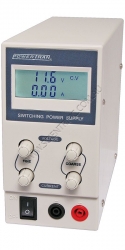

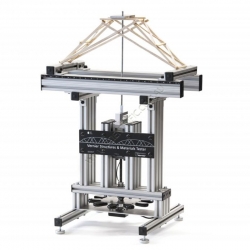
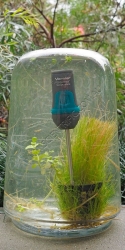

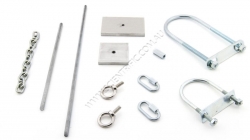
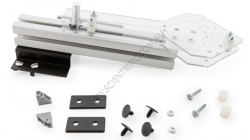

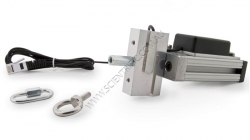
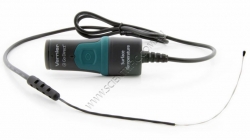


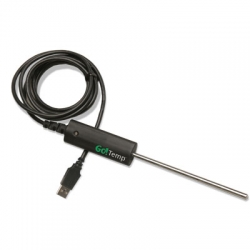




386 results found for 'for'. Prev |1|2|3|4|5|6|7|8|9|10|11|12|13|14|15|16 | Next | View 100 per page
Low relevance matches: 424 other results may be of interest to you. Show low relevance matches
Curriculum resources related to 'for'
ACSSU005 Foundation Physical SciencesForces and Moving - The way objects move depends on a variety of factors including their size and shape ACSSU031 Year 2 Chemical Sciences
Materials - Different materials can be combined, including by mixing, for a particular purpose ACSSU033 Year 2 Physical Sciences
Forces and Moving - A push or a pull affects how an object moves or changes shape ACSSU076 Year 4 Physical Sciences
Forces and Moving - Forces can be exerted by one object on another through direct contact or from a distance ACSSU080 Year 5 Physical Sciences
Light and Sound - Light from a source forms shadows and can be absorbed, reflected and refracted ACSSU097 Year 6 Physical Sciences
Electrical Circuits - Electrical energy can be transferred and transformed in electrical circuits and can be generated from a range of sources ACSSU117 Year 7 Physical Sciences
Forces and Machines - Change to an object’s motion is caused by unbalanced forces, including Earth’s gravitational attraction, acting on the object ACSSU153 Year 8 Earth and Space Sciences
Rocks and Minerals - Sedimentary, igneous and metamorphic rocks contain minerals and are formed by processes that occur within Earth over a variety of timescales ACSSU155 Year 8 Physical Sciences
Energy Forms - Energy appears in different forms, including movement (kinetic energy), heat and potential energy, and energy transformations and transfers cause change within systems ACSSU178 Year 9 Chemical Sciences
Chemical Reactions - Chemical reactions involve rearranging atoms to form new substances; during a chemical reaction mass is not created or destroyed ACSSU225 Year 8 Chemical Sciences
Chemical Reactions - Chemical change involves substances reacting to form new substances ACSSU190 Year 10 Physical Sciences
Energy Conservation - Energy conservation in a system can be explained by describing energy transfers and transformations ACSSU229 Year 10 Physical Sciences
Forces and Motion - The motion of objects can be described and predicted using the laws of physics ACSBL029 Year 11 Biodiversity and the interconnectedness of life
Ecosystem dynamics - Models of ecosystem interactions (for example, food webs, successional models) can be used to predict the impact of change and are based on interpretation of and extrapolation from sample data (for example, data derived from ecosystem surveying techniques ACSBL115 Year 12 Maintaining the internal environment
Homeostasis - Animals, whether osmo-regulators or osmo-conformers, and plants, have various mechanisms to maintain water balance that involve structural features, and behavioural, physiological and homeostatic responses ACSCH018 Year 11 Chemical fundamentals
Properties and structure of atoms - Atoms can be modelled as a nucleus surrounded by electrons in distinct energy levels, held together by electrostatic forces of attraction between the nucleus and electrons; atoms can be represented using electron shell diagrams (all electron shells or val ACSCH025 Year 11 Chemical fundamentals
Properties and structure of materials - Materials are either pure substances with distinct measurable properties (for example, melting and boiling point, reactivity, strength, density) or mixtures with properties dependent on the identity and relative amounts of the substances that make up the ACSCH030 Year 11 Chemical fundamentals
Properties and structure of materials - Ions are atoms or groups of atoms that are electrically charged due to an imbalance in the number of electrons and protons; ions are represented by formulae which include the number of constituent atoms and the charge of the ion (for example, O2–, SO42–) ACSCH032 Year 11 Chemical fundamentals
Properties and structure of materials - The characteristic properties of metals (for example, malleability, thermal conductivity, electrical conductivity) are explained by modelling metallic bonding as a regular arrangement of positive ions (cations) made stable by electrostatic forces of attra ACSCH036 Year 11 Chemical fundamentals
Chemical reactions - All chemical reactions involve the creation of new substances and associated energy transformations, commonly observable as changes in the temperature of the surroundings and/or the emission of light ACSCH037 Year 11 Chemical fundamentals
Chemical reactions - Endothermic and exothermic reactions can be explained in terms of the Law of Conservation of Energy and the breaking and reforming of bonds; heat energy released or absorbed can be represented in thermochemical equations ACSCH039 Year 11 Chemical fundamentals
Chemical reactions - A mole is a precisely defined quantity of matter equal to Avogadro’s number of particles; the mole concept and the Law of Conservation of Mass can be used to calculate the mass of reactants and products in a chemical reaction ACSCH056 Year 11 Molecular interactions and reactions
Intermolecular forces and gases - The shapes of molecules can be explained and predicted using three dimensional representations of electrons as charge clouds and using valence shell electron pair repulsion (VSEPR) theory ACSCH059 Year 11 Molecular interactions and reactions
Intermolecular forces and gases - Data from chromatography techniques (for example, thin layer, gas and highperformance liquid chromatography) can be used to determine the composition and purity of substances; the separation of the components is caused by the variation of strength of the ACSCH060 Year 11 Molecular interactions and reactions
Intermolecular forces and gases - The behaviour of gases, including the qualitative relationships between pressure, temperature and volume, can be explained using kinetic theory ACSCH065 Year 11 Molecular interactions and reactions
Aqueous solutions and acidity - The solubility of substances in water, including ionic and molecular substances, can be explained by the intermolecular forces between species in the substances and water molecules, and is affected by changes in temperature ACSCH069 Year 11 Molecular interactions and reactions
Rates of chemical reactions - The rate of chemical reactions can be quantified by measuring the rate of formation of products or the depletion of reactants ACSCH101 Year 12 Equilibrium acids and redox reactions
Chemical equilibrium systems - Acidbase indicators are weak acids or bases where the acidic form is of a different colour to the basic form ACSCH131 Year 12 Structure synthesis and design
Chemical synthesis and design - Chemical synthesis involves the selection of particular reagents to form a product with specific properties (for example, pharmaceuticals, fuels, cosmetics, cleaning products) ACSPH039 Year 11 Thermal nuclear and electrical physics
Electrical circuits - Energy is conserved in the energy transfers and transformations that occur in an electrical circuit ACSPH042 Year 11 Thermal nuclear and electrical physics
Electrical circuits - Power is the rate at which energy is transformed by a circuit component; power enables quantitative analysis of energy transformations in the circuit ACSPH043 Year 11 Thermal nuclear and electrical physics
Electrical circuits - Resistance for ohmic and nonohmic components is defined as the ratio of potential difference across the component to the current in the component ACSPH060 Year 11 Linear Motion and Waves
Linear motion and force - Uniformly accelerated motion is described in terms of relationships between measurable scalar and vector quantities, including displacement, speed, velocity and acceleration ACSPH061 Year 11 Linear Motion and Waves
Linear motion and force - Representations, including graphs and vectors, and/or equations of motion, can be used qualitatively and quantitatively to describe and predict linear motion ACSPH062 Year 11 Linear Motion and Waves
Linear motion and force - Vertical motion is analysed by assuming the acceleration due to gravity is constant near Earth’s surface ACSPH063 Year 11 Linear Motion and Waves
Linear motion and force - Newton’s Three Laws of Motion describe the relationship between the force or forces acting on an object, modelled as a point mass, and the motion of the object due to the application of the force or forces ACSPH064 Year 11 Linear Motion and Waves
Linear motion and force - Momentum is a property of moving objects; it is conserved in a closed system and may be transferred from one object to another when a force acts over a time interval ACSPH065 Year 11 Linear Motion and Waves
Linear motion and force - Energy is conserved in isolated systems and is transferred from one object to another when a force is applied over a distance; this causes work to be done and changes to kinetic and/or potential energy of objects ACSPH066 Year 11 Linear Motion and Waves
Linear motion and force - Collisions may be elastic and inelastic; kinetic energy is conserved in elastic collisions ACSPH072 Year 11 Linear Motion and Waves
Waves - The superposition of waves in a medium may lead to the formation of standing waves and interference phenomena, including standing waves in pipes and on stretched strings ACSPH102 Year 12 Gravity and electromagnetism
Electromagnetism - Electrostatically charged objects exert a force upon one another; the magnitude of this force can be calculated using Coulomb’s Law ACSPH110 Year 12 Gravity and electromagnetism
Electromagnetism - A changing magnetic flux induces a potential difference; this process of electromagnetic induction is used in stepup and stepdown transformers, DC and AC generators, and AC induction motors ACSBL053 Year 11 Biodiversity and the interconnectedness of life
Ecosystem dynamics - Cellular respiration is a biochemical process that occurs in different locations in the cytosol and mitochondria and metabolises organic compounds, aerobically or anaerobically, to release useable energy in the form of ATP; the overall process can be repr ACSPH108 Year 12 Gravity and electromagnetism
Electromagnetism - Magnets, magnetic materials, moving charges and currentcarrying wires experience a force in a magnetic field; this force is utilised in DC electric motors ACSPH021 Year 11 Thermal nuclear and electrical physics
Heating processes - Change of state involves internal energy changes to form or break bonds between atoms or molecules; latent heat is the energy required to be added to or removed from a system to change the state of the system ACSPH100 Year 12 Gravity and electromagnetism
Gravity and motion - When an object experiences a net force of constant magnitude perpendicular to its velocity, it will undergo uniform circular motion, including circular motion on a horizontal plane and around a banked track ACSCH031 Year 11 Chemical fundamentals
Properties and structure of materials - The properties of ionic compounds (for example, high melting point, brittleness, ability to conduct electricity when liquid or in solution) are explained by modelling ionic bonding as ions arranged in a crystalline lattice structure with forces of attract ACSCH137 Year 12 Structure synthesis and design
Chemical synthesis and design - Fuels (for example, biodiesel, ethanol, hydrogen) can be synthesised from organic or inorganic sources using a range of chemical reactions including addition, oxidation and esterification ACSPH075 Year 11 Linear Motion and Waves
Waves - A ray model of light may be used to describe reflection, refraction and image formation from lenses and mirrors ACSPH077 Year 11 Linear Motion and Waves
Waves - The speed of light is finite and many orders of magnitude greater than the speed of mechanical waves (for example, sound and water waves); its intensity decreases in an inverse square relationship with distance from a point source ACSPH098 Year 12 Gravity and electromagnetism
Gravity and motion - The vector nature of the gravitational force can be used to analyse motion on inclined planes by considering the components of the gravitational force (that is, weight) parallel and perpendicular to the plane ACSPH103 Year 12 Gravity and electromagnetism
Electromagnetism - A positively charged body placed in an electric field will experience a force in the direction of the field; the strength of the electric field is defined as the force per unit charge ACSPH104 Year 12 Gravity and electromagnetism
Electromagnetism - Point charges and charged objects produce an electric field in the space that surrounds them; field theory attributes the electrostatic force on a point charge or charged body to the presence of an electric field ACSPH105 Year 12 Gravity and electromagnetism
Electromagnetism - When a charged body moves or is moved from one point to another in an electric field and its potential energy changes, work is done on or by the field
Products related to 'for'

Vernier Spectrum Discharge Tube - Air
VERNIER SPECTRUM TUBE - AIR
Permanently enclosed in a protective plastic carrier, the air spectrum tube is for use in the Vernier Spectrum Discharge Tube Single Power Supply. It can also be used in the discontinued Vernier Spectrum Tube Carousel Power Supply.
Order code: ST-AIR

Vernier Spectrum Discharge Tube - CO2
VERNIER CARBON DIOXIDE SPECTRUM TUBE
Permanently enclosed in a protective plastic carrier, the carbon dioxide spectrum tube is for use in the Vernier Spectrum Discharge Tube Single Power Supply. It can also be used in the discontinued Vernier Spectrum Tube Carousel Power...
Order code: ST-CO2

Vernier Spectrum Discharge Tube - Neon
VERNIER NEON SPECTRUM TUBE
Permanently enclosed in a protective plastic carrier, the neon spectrum tube is for use in the Vernier Spectrum Discharge Tube Single Power Supply. It can also be used in the discontinued Vernier Spectrum Tube Carousel Power Supply.
Order code: ST-NE

Vernier Spectrum Discharge Tube - Helium
VERNIER HELIUM SPECTRUM TUBE
Permanently enclosed in a protective plastic carrier, the helium spectrum tube is for use in the Vernier Spectrum Discharge Tube Single Power Supply. It can also be used in the discontinued Vernier Spectrum Tube Carousel Power Supply.
Order code: ST-HE

Power Supply 0-30V 0-5A Regulated
POWER SUPPLY 0-30V 0-5A REGULATED.
A compact, efficient bench top power supply for use in servicing, repair and design of electronics. The low noise switchmode design offers excellent regulation for low current requirements. Fine/coarse voltage and current controls allow ...
Order code: SC2292

Vernier Spectrum Discharge Tube - Nitrogen
VERNIER NITROGEN SPECTRUM TUBE
Permanently enclosed in a protective plastic carrier, the nitrogen spectrum tube is for use in the Vernier Spectrum Discharge Tube Single Power Supply. It can also be used in the discontinued Vernier Spectrum Tube Carousel Power Supply....
Order code: ST-N

Vernier Structures & Materials Tester
Discontinued
VERNIER STRUCTURES AND MATERIALS TESTER Evaluate the strength of model bridges and engineered structures by measuring the applied load with the Vernier Structures and Materials Tester. Utilizing both load and displacement sensors allows students to evaluate properties of ... Order code: VSMT
VERNIER STRUCTURES AND MATERIALS TESTER Evaluate the strength of model bridges and engineered structures by measuring the applied load with the Vernier Structures and Materials Tester. Utilizing both load and displacement sensors allows students to evaluate properties of ... Order code: VSMT

Vernier Go Direct Temperature Teacher Pack
VERNIER GO DIRECT TEMPERATURE PROBE TEACHER PACK
Buy more and save. With Vernier's Go Direct Temperature Teacher Pack you receive eight Vernier Go Direct Temperature Probes and a convenient charging station that allows you to charge the eight Go Direct Temperature Probes ...
Order code: GDX-TMP-TP



Vernier Spectrum Discharge Tube - Hydrogen
VERNIER HYDROGEN SPECTRUM TUBE
Permanently enclosed in a protective plastic carrier, the hydrogen spectrum tube is for use in the Vernier Spectrum Discharge Tube Single Power Supply. It can also be used in the discontinued Vernier Spectrum Tube Carousel Power Supply....
Order code: ST-H

Vernier Structure and Materials Tester (VSMT) Tackle Kit
VERNIER VSMT TACKLE KIT
This Tackle Kit is supplied with Vernier Structures and Materials Testers and includes accessories to make it quick and easy to load bridges, materials, beams and structures of varying sizes and shapes.
It may be useful to purchase an additional...
Order code: VSMT-TK

Vernier Truss Tester Accessory
VERNIER TRUSS TESTER ACCESSORY
The Truss Tester Accessory for Vernier Structures and Materials Testers provides a fast and effective method to evaluate the strength of trusses. Students use the tester to collect data that allows them to evaluate parameters affecting truss...
Order code: VSMT-TRUSS

Vernier Go Direct Wide Range Temperature Probe
VERNIER GO DIRECT WIDE RANGE TEMPERATURE PROBE
Measuring the temperature of a distillation has never been safer — your students can conduct an experiment within the laboratory fume hood while collecting data at their lab station. The Vernier Go Direct Wide-Range Temperatu...
Order code: GDX-WRT



Vernier VSMT Force Cell
VERNIER VSMT REPLACEMENT FORCE CELL
This is a replacement force cell for the original VSMT Vernier Structures and Materials Tester not the GDX-VSMT.
If the force sensor needs to be repaired or replaced Vernier's website describes how it can be removed from the V...
Order code: VSMT-FORCE

Vernier Go Direct Surface Temperature Sensor
VERNIER GO DIRECT SURFACE TEMPERATURE SENSOR
Designed for use in situations in which low thermal mass or flexibility is required, the Vernier Go Direct Surface Temperature Sensor connects wirelessly via Bluetooth® or wired via USB to your device.
This sensor has an exp...
Order code: GDX-ST



IEC Hodson Light Box and Optical Set
IEC HODSON LIGHT BOX AND OPTICAL SET
The IEC 'Hodson' Light Box and Optical Set is a comprehensive kit of parts to explore experiments in basic optics and colour blending. It has been copied in many countries around the world, but the original is still the best quality an...
Order code: HL2060-001


| Purchase QTY: (Each) | 1+ |
|---|---|
| Scientrific's price | $135.00 |
| Educational special | $122.00 |
| CLICK FOR QTY PRICING | |
| Prices exclude GST and freight | |

Vernier Spectrum Discharge Tube Fiber Optic Holder Single
VERNIER SPECTRUM TUBE FIBER OPTIC HOLDER SINGLE
The Fiber Holder for the Spectrum Tube Single Power Supply securely holds an optical fiber in the proper position to carry light from the discharge tube to the spectrometer. Compatible with both Ocean Optics fibers and Verni...
Order code: ST-FHS

Vernier Go!Temp Data Logger Temperature Probe with Logger Lite Software
VERNIER GO!TEMP.
An easy to use data logging temperature sensor that connects directly to a USB port and measures temperatures from -20° to 115°C.
Free downloadable Logger Lite software is included. Simply install the software, connect your Go!Temp and you're up and r...
Order code: GO-TEMP



Vernier Go!Temp Data Logger Temperature Probe Teacher Pack of 8
VERNIER GO!TEMP TEACHER PACK.
A pack of eight easy to use data logging temperature sensors that connect directly to a USB port and measure temperatures from -20° to 115°C. Connect a temperature sensor to 8 different computers or connect multiple temperature sensors to one...
Order code: GT-TP



Vernier SpectroVis Optical Fiber
VERNIER OPTICAL FIBRE FOR SPECTROVIS PLUS
A special optical fibre cable used for emission experiments with the Vernier SpectroVis or SpectroVis Plus spectrometer.
Both these Vernier spectrometers are discontinued and no longer available.
NOTE: SVIS-FIBER is NOT ...
Order code: SVIS-FIBER
Whiteboard Marker Auspen - Bottle of Blue Refill Ink
23ml bottle of blue refill ink for Auspen whiteboard markers.
Black, red, orange, green and purple ink refills are also available.
Order code: SC2121
Whiteboard Marker Auspen - Bottle of Red Refill Ink
23ml bottle of red refill ink for Auspen whiteboard markers.
Black, blue, orange, green and purple ink refills are also available.
Order code: SC2122
Whiteboard Marker Auspen - Bottle of Green Refill Ink
23ml bottle of green refill ink for Auspen whiteboard markers.
Black, blue, red, orange and purple ink refills are also available.
Order code: SC2124

Vernier Go!Motion Data Logger with Logger Lite software
VERNIER GO!MOTION
Go!Motion is Vernier's motion detector that connects directly to a computer or Chromebook USB port eliminating the need for an additional data-collection interface, making it fast and easy to set up experiments and start collecting a wide range of real-t...
Order code: GO-MOT



Vernier Go!Motion Data Logger Teacher Pack of 8
VERNIER GO!MOTION DATA LOGGER Teacher Pack of 8.
Save money when you purchase the Vernier Go!Motion Teacher Pack which includes eight Go!Motion USB motion detectors.
Go!Motion is Vernier's motion detector that connects directly to a computer or Chromebook USB port elim...
Order code: GO-MOT-TP


Whiteboard Marker Auspen - Bottle of Orange Refill Ink
23ml bottle of orange refill ink for Auspen whiteboard markers.
Black, blue, red, green and purple ink refills are also available.
Order code: SC2125
386 results found for 'for'. Prev |1|2|3|4|5|6|7|8|9|10|11|12|13|14|15|16 | Next | View 100 per page


